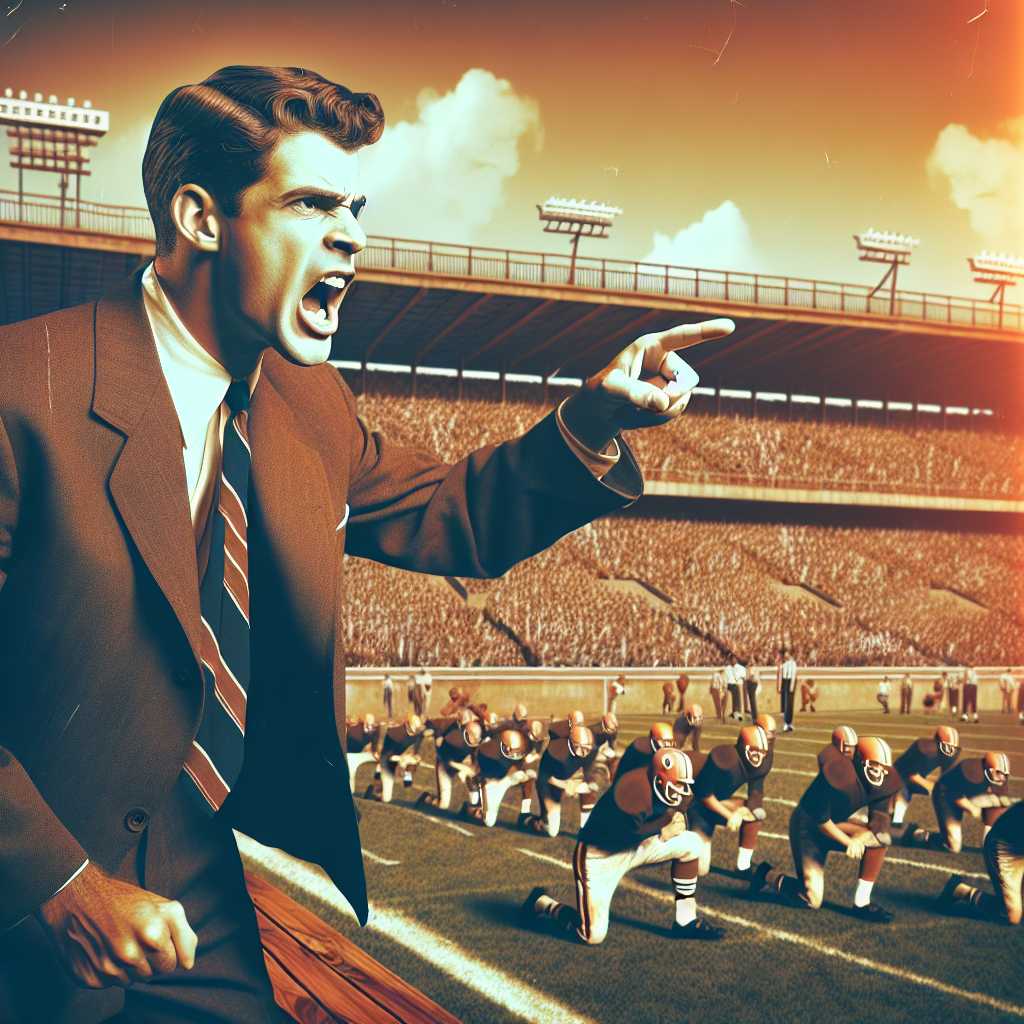# Jim Harbaugh: A Portrait of a Storied Football Career
Jim Harbaugh stands as a towering figure in the world of American football, having navigated a lengthy and noteworthy journey through the sport both on and off the field. From his days as a high-caliber quarterback to his tenure as a head coach for some of the most prestigious programs in college football and the NFL, Harbaugh’s influence on the game is unquestionable. This article will delve into the milestones of his playing career, his philosophies as a coach, and his impact on the teams he has led.
Early Life and College Prowess
Jim Harbaugh was born on December 23, 1963, into a football-focused family. His father, Jack Harbaugh, was an assistant coach at the University of Michigan, so it seemed almost predestined that Jim would find his path on the football field. It came as no surprise when he established himself as a star athlete at the quarterback position during his high school years in California and then in Michigan.
Harbaugh’s collegiate career took off when he attended the University of Michigan. Playing under legendary coach Bo Schembechler from 1983 to 1986, Harbaugh’s competitive tenacity and tactical awareness became signatures of his play. He led the Wolverines to numerous victories and set several passing records during his time, culminating in a third-place finish in the Heisman Trophy voting during his senior year.
Pro Football Years
Upon entering the NFL after being selected by the Chicago Bears in the first round of the 1987 NFL Draft, Harbaugh enjoyed substantial success over a 14-year playing career. He earned the moniker “Captain Comeback” due to his penchant for orchestrating late-game heroics, most notably with the Indianapolis Colts. His blue-collar approach to the game endeared him to team-mates and fans alike.
Harbaugh’s ability to adapt to different teams and systems—notably suiting up for franchises like Chicago, Indianapolis, Baltimore, and San Diego—highlighted his depth of knowledge and flexible skill set. Even though he never hoisted a Lombardi Trophy as a player, his gameplay left an indelible mark on those with whom he played and against whom he competed.
Transition-to-Coaching Saga
Once Harbaugh’s playing days drew to a close, he quickly transitioned into coaching, bringing with him an intense competitive edge that became integral to his philosophy as a leader. Starting as an assistant coach before making his way into head coaching positions at the University of San Diego and Stanford University, Harbaugh showcased his ability to revitalize struggling programs and turn them into contenders.
Perhaps most impressive was Harbaugh’s stint with Stanford from 2007 to 2010. Taking over a program mired in mediocrity, he instilled a toughness that manifested itself in an unimaginable turnaround capped by an Orange Bowl victory in January 2011.
NFL Coaching Tenure and Return to College
Harbaugh’s success at Stanford naturally led him to the NFL coaching ranks. As head coach of the San Francisco 49ers from 2011 to 2014, he steered the team to three NFC Championship games and one Super Bowl appearance. His competitive demeanor remained unchanged; Harbaugh demanded excellence and held players accountable.
Following his run in San Francisco, he returned to college football—not just at any institution but at his alma mater: The University of Michigan. Since taking over in 2015, he has been working tirelessly to bring his school back to prominence amid the tough waters of Big Ten competition.
Coaching Philosophy and Leadership
Harbaugh’s coaching methodology is built upon robust defensive gameplay and efficient offensive production, believing firmly in disciplined execution over gimmickry. His leadership style is often described as hard-nosed—he respects effort and perseverance and has little patience for anything less than full commitment from players and coaching staff alike.
It’s this assertive approach that often sees his teams exceed expectations; Harbaugh believes earnestly in establishing a culture wherein excellence is pursued persistently. While this intensity can be polarizing for some players and analysts, it has undeniably pushed his teams to achieve significant milestones more often than not.
Harbaugh Now: Looking Forward
In recent years Jim Harbaugh has faced challenges at Michigan—evaluating where the program stands regarding its national presence and working diligently to recruit talent capable of competing for Championships. Nonetheless, fans remain hopeful that Harbaugh’s relentless striving for greatness will culminate in Michigan securing its sought-after titles.
